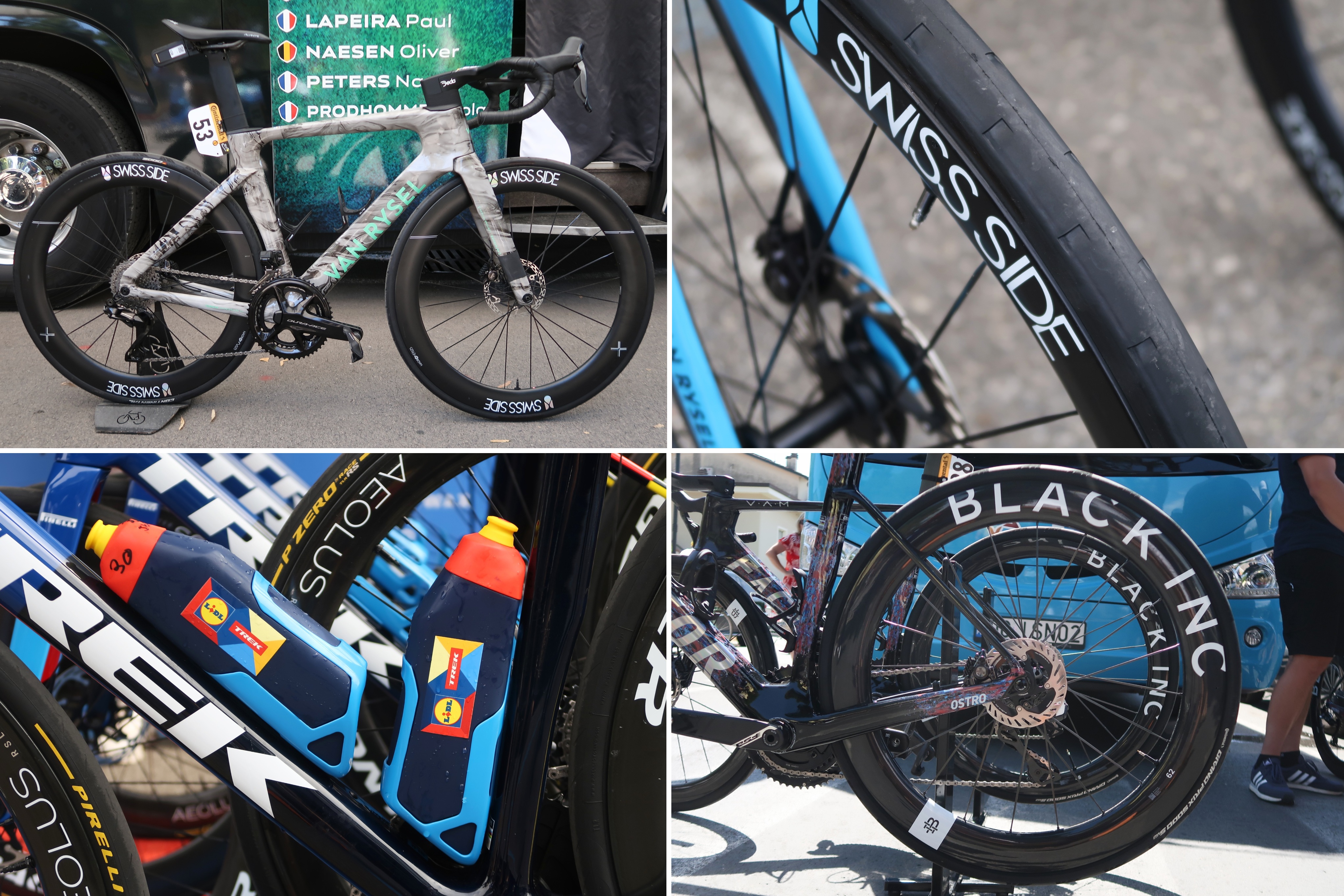
Just three stages in, and this year's Tour de France has proven to be a hotbed of unreleased tech.
Cycling Weekly spent the last three days nosing around the team paddocks across the Italian Grand Départ, and found a prototype Decathlon superbike, new aero wheels and bottles, and freshly developed tyres with go-faster tread.
The advances, of course, come as no surprise; there are stage wins up for grabs, and valuable seconds available in the general classification. Here are some of the new marginal gains teams are deploying to try and make a difference.
NEW BIKES
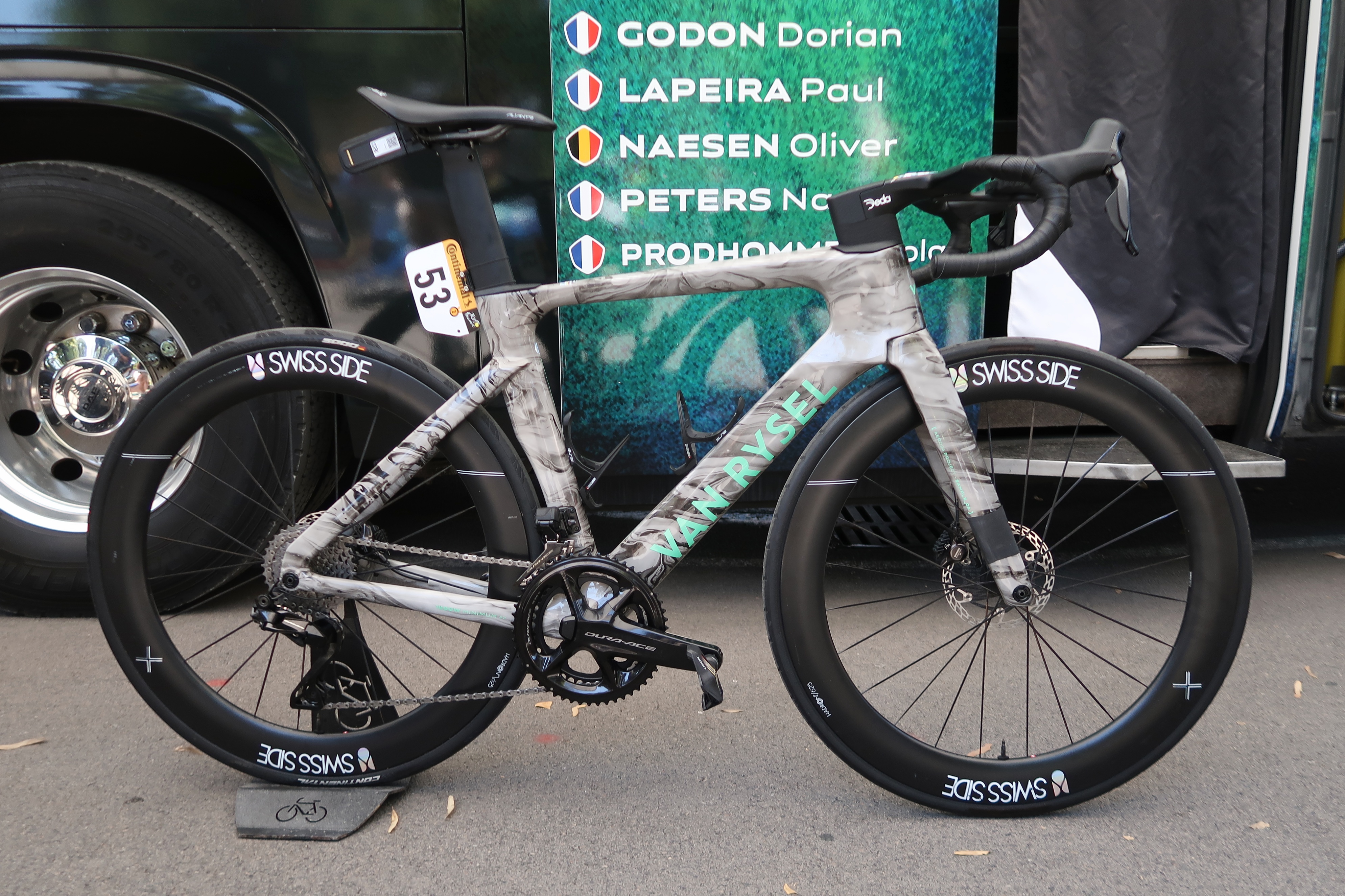
Among the new bikes that have broken cover at the race is an aero super-machine from Decathlon in-house brand Van Rysel.
Labelled the 'FCR', the bike's frame is distinctly sharper than the RCR Pro ridden by Decathlon AG2R La Mondiale throughout the season. One of the team's mechanics said the riders had been "very impressed" by its speed in their training.
Sam Bennett and Felix Gall made the bike's debut in competition on stage two to Bologna, with Bennett riding it to ninth in the sprint the following day.
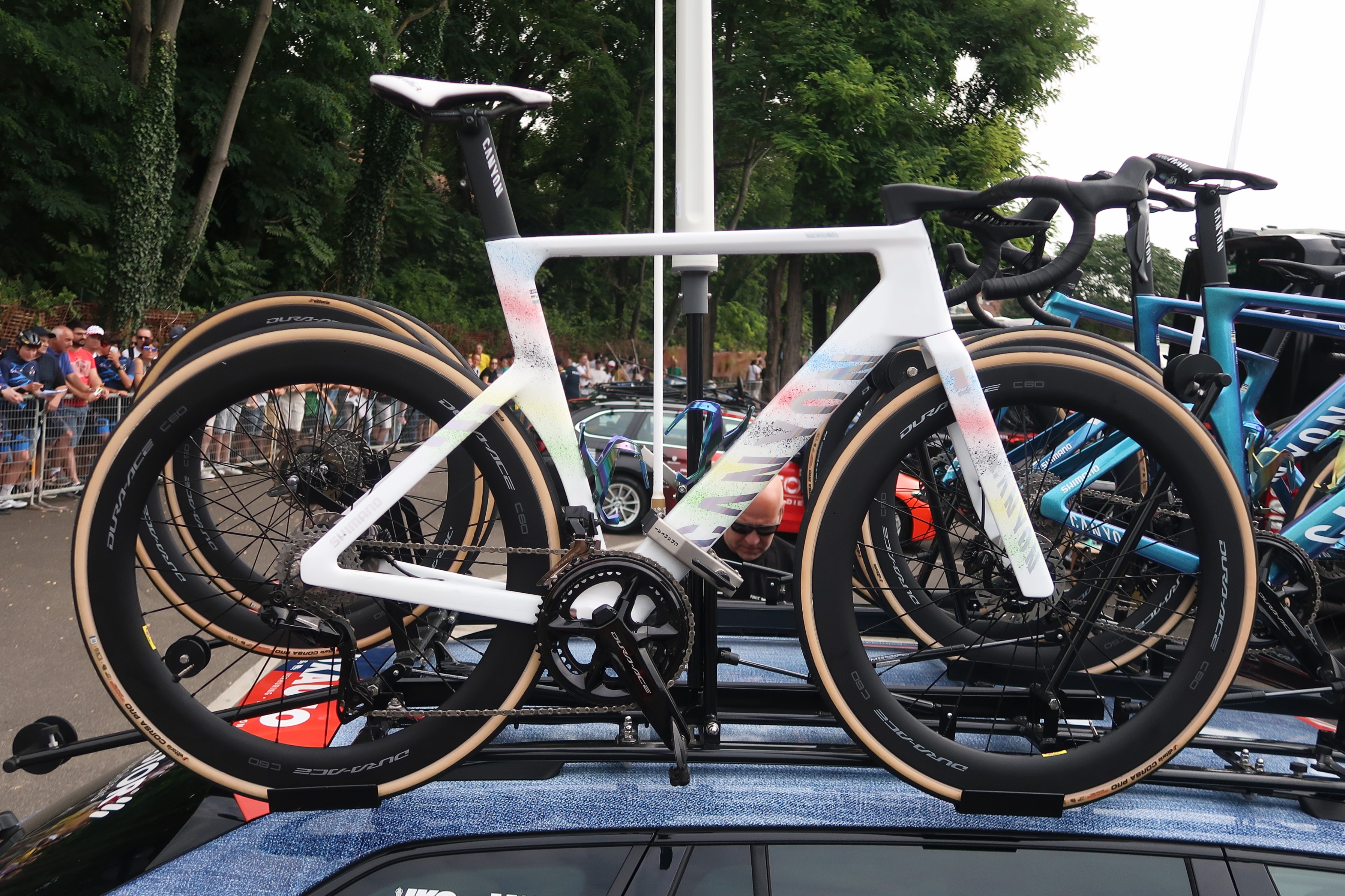
World champion Mathieu van der Poel and his teammate Jasper Philipsen have also been riding a new bike, an unreleased but undoubtedly updated model of the Canyon Aeroad CFR.
The differences from its previous iteration are subtle, with the head tube and seatstays receiving fine attention. The designers have also updated the bike's integrated handlebars, which have a negative drop to draw the rider into a more aggressive position.
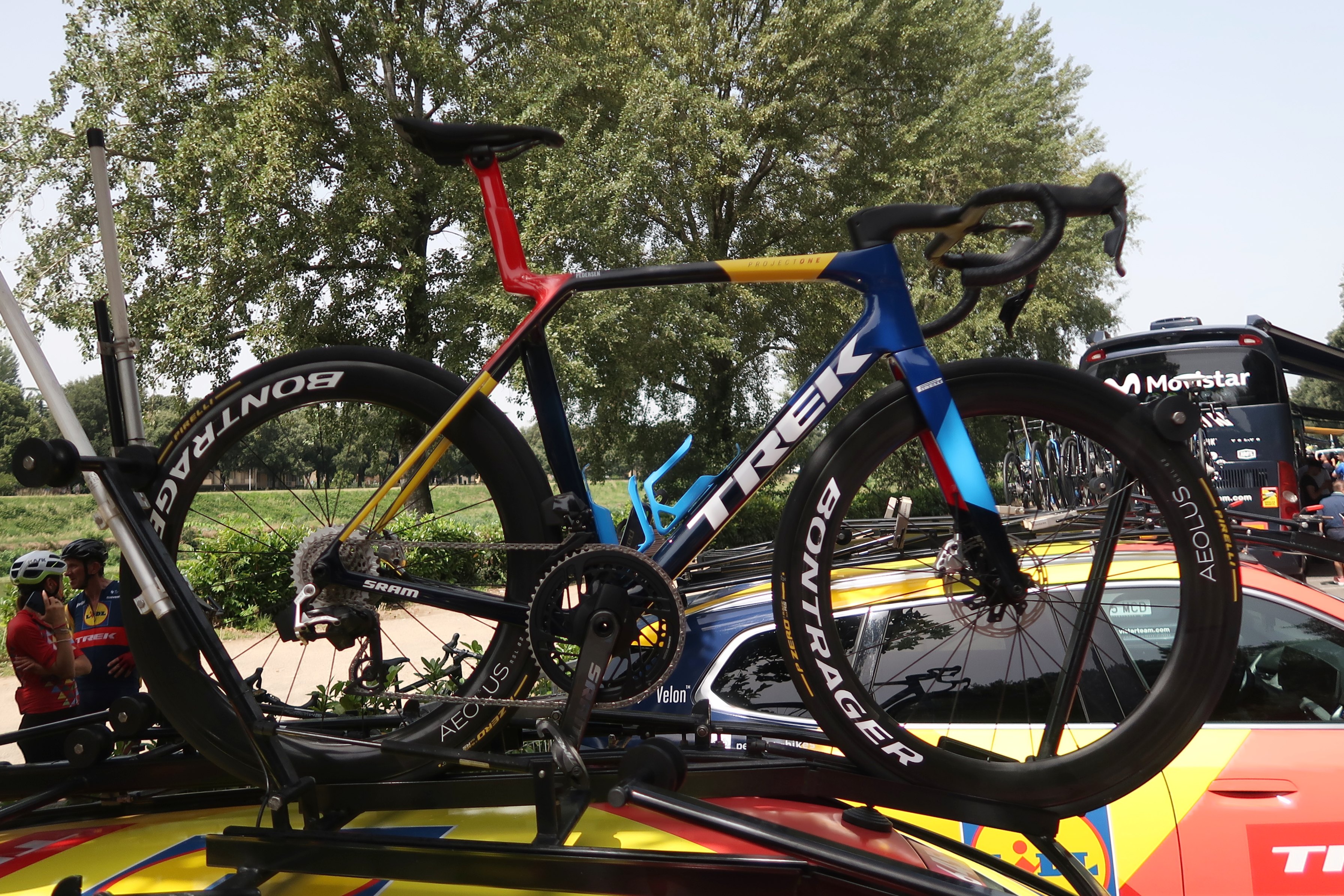
Bike brand Trek chose to be louder with the launch of their new Madone Gen 8, used by Lidl-Trek at the race, which was officially unveiled two days before the start of the Tour.
The bike claims to be as light as the brand's climbing offering, the Émonda SLR, but as fast as its best racing options.
According to Trek, the frame is made of a new type of carbon – 900 series OCLV – which benefits from a "more efficient moulding process".
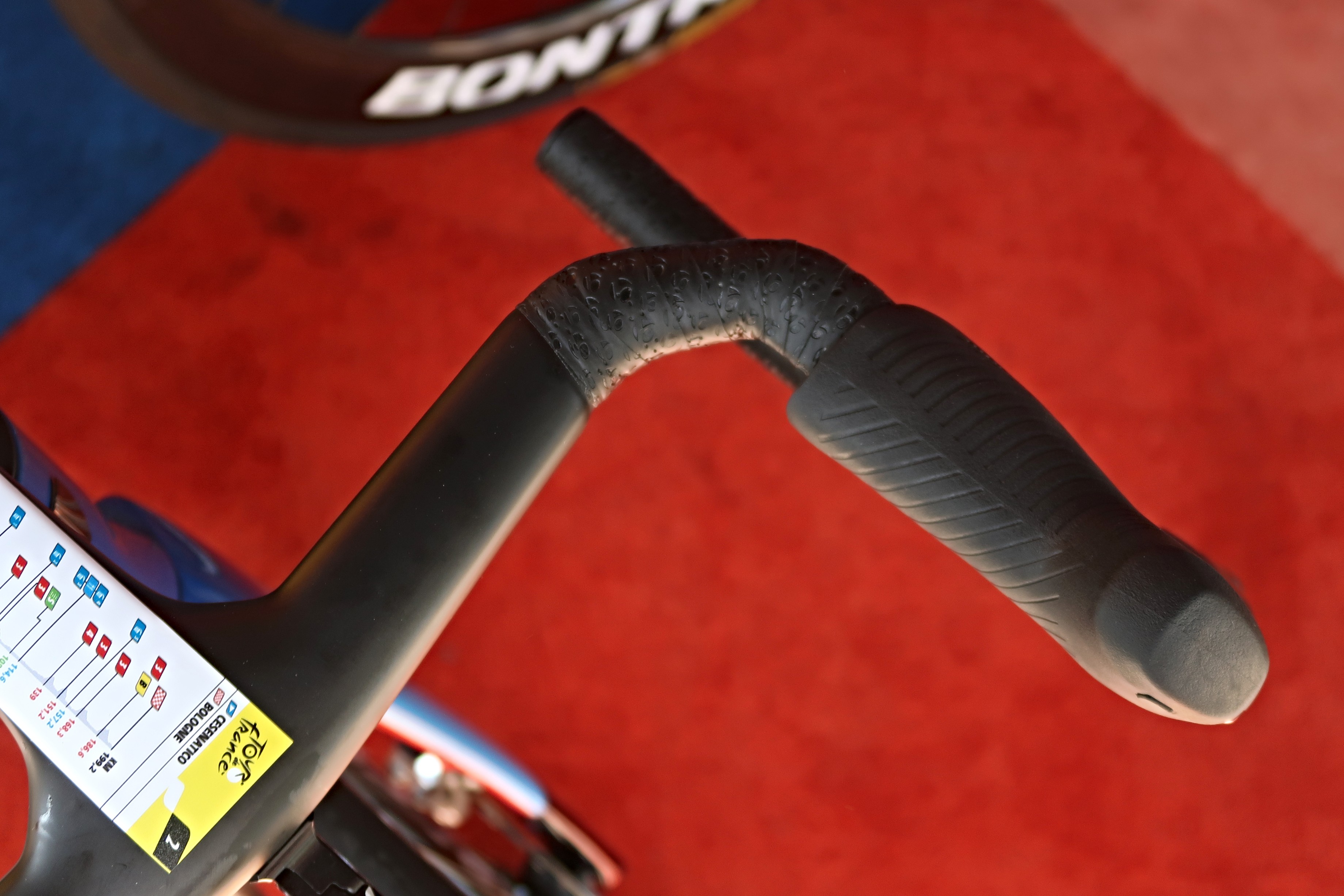
One of the aspects of the new Madone Gen 8 that was overlooked in its initial release is its peculiar handlebars.
Rather than a smooth curve, their design follows a jagged path, in an almost half-pentagonal shape. The new bars are thicker than their predecessors, and are said to be less aerodynamic themselves, but "slightly reduce drag on the pedalling legs by slowing the air down in front of [the rider]".
AERO BOTTLES
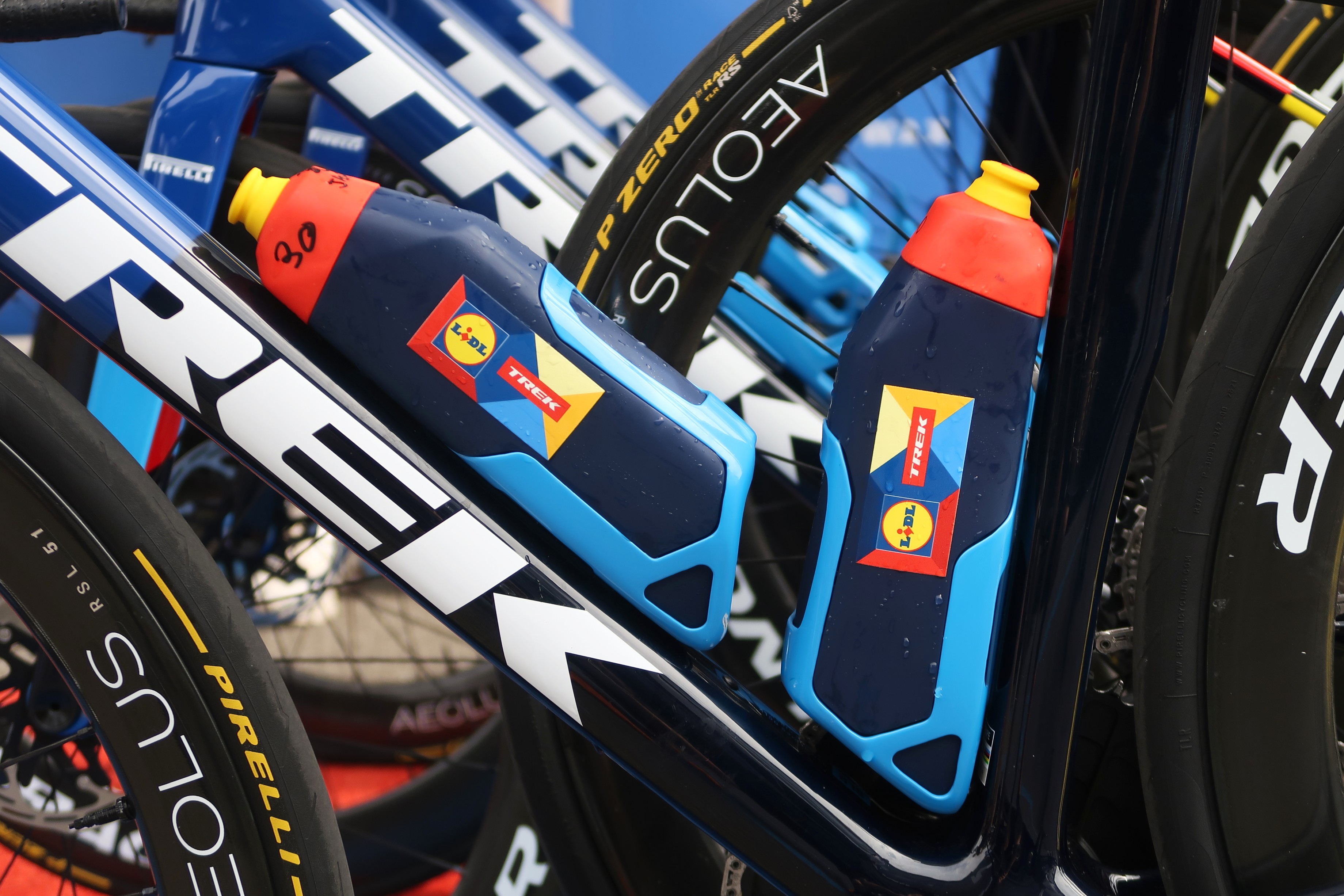
Lidl-Trek's asymmetrical bottles also stand out in their new set-up.
A spokesperson for the team told Cycling Weekly that the design is the fruit of an elaborate aerodynamic testing process that made them more aligned with the frame's down tube.
The spokesperson also explained that the testing process revealed the bike to be quicker when the new bottles are in the cages. So don't be surprised to see Mads Pedersen sprinting with a fully-loaded frame.
UNRELEASED WHEELS

A brand-new set of Black Inc aero wheels were spotted at the Israel-Premier Tech bus. Only one rider, Guillaume Boivin, chose to use them on stage two, with the majority of the team opting for them on the flatter third stage.
The unreleased wheels are deeper than the ones previously used by the team, with the number 62 written on them, presumably denoting their depth. Asked by Cycling Weekly for more information, a team mechanic said he knew "absolutely nothing" about the wheels, just that the sponsors had recently provided them.
AERO TREAD
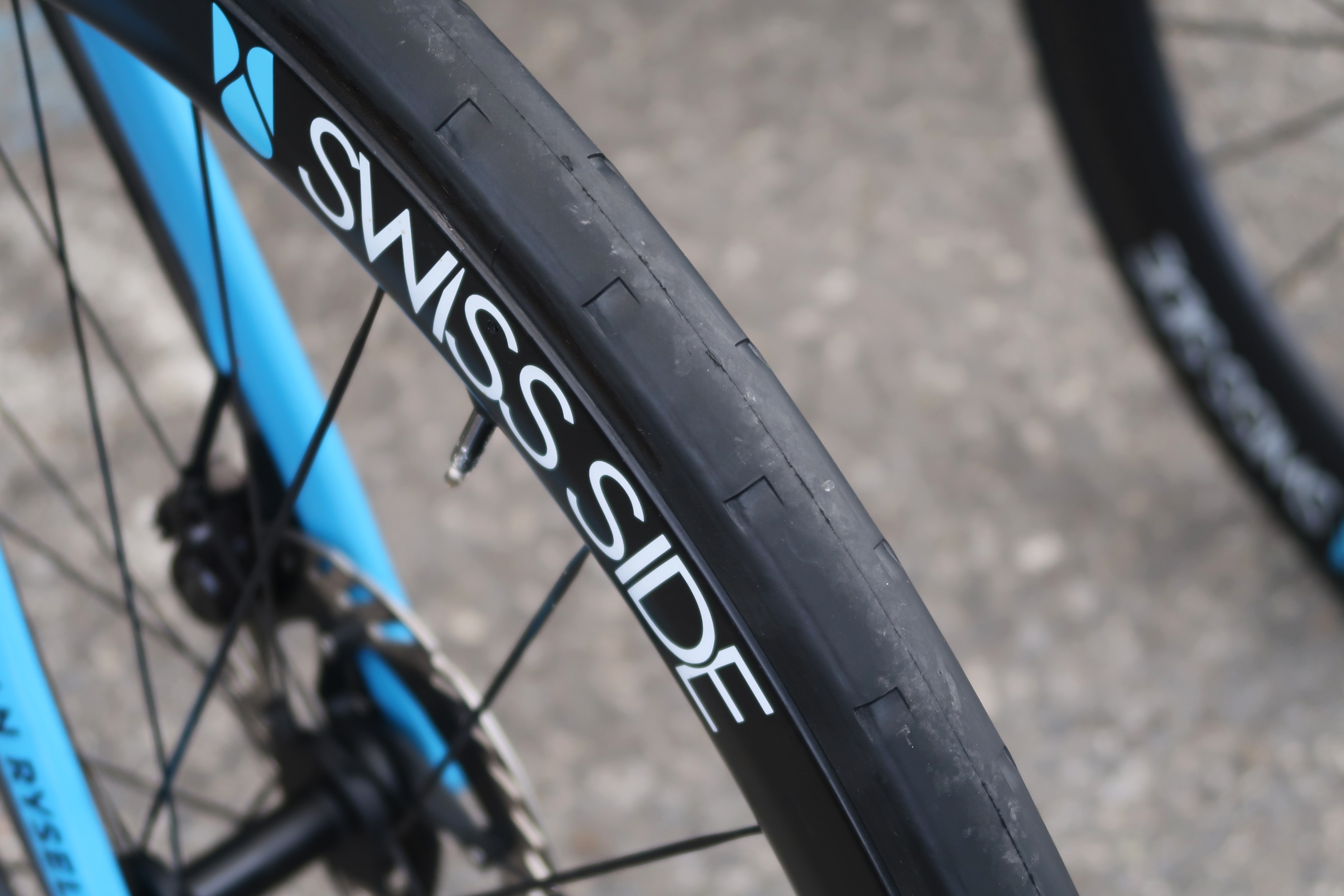
There's a new tyre design in the bunch, too, with an eye-catching, chiselled out tread.
Decathlon AG2R La Mondiale riders' bikes are fitted with Continental tyres marked 'Aero 111', which have a curiously boxy pattern.
The team only fitted the new tyres on the rider's front wheels, with a mechanic confirming that there is a negligible advantage in having them at the rear, due to turbulence created by air hitting the down and seat tubes. Decathlon AG2R La Mondiale have therefore been riding with mismatched tyres, Aero 111s on the front, and GP5000s on the back.







